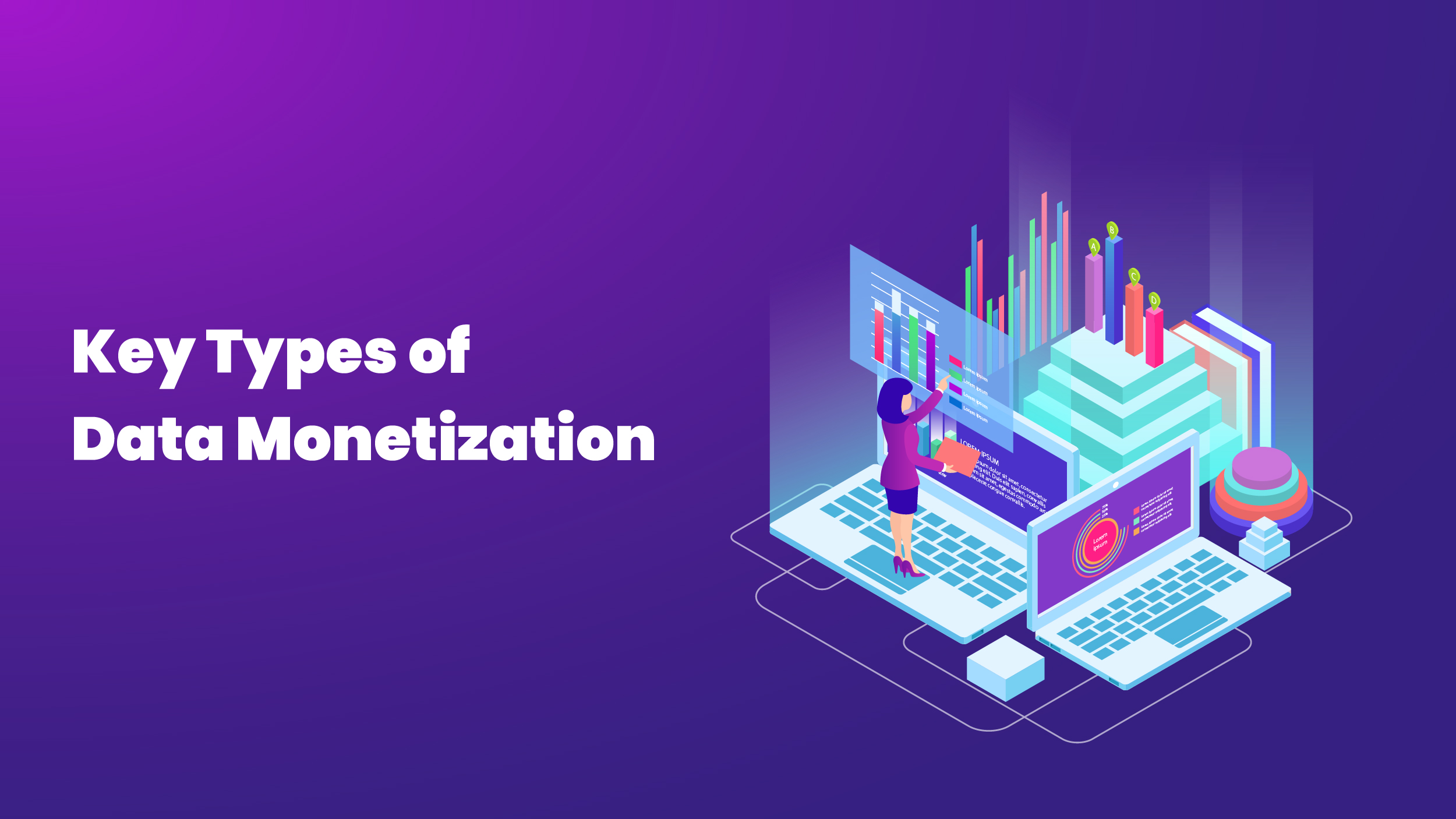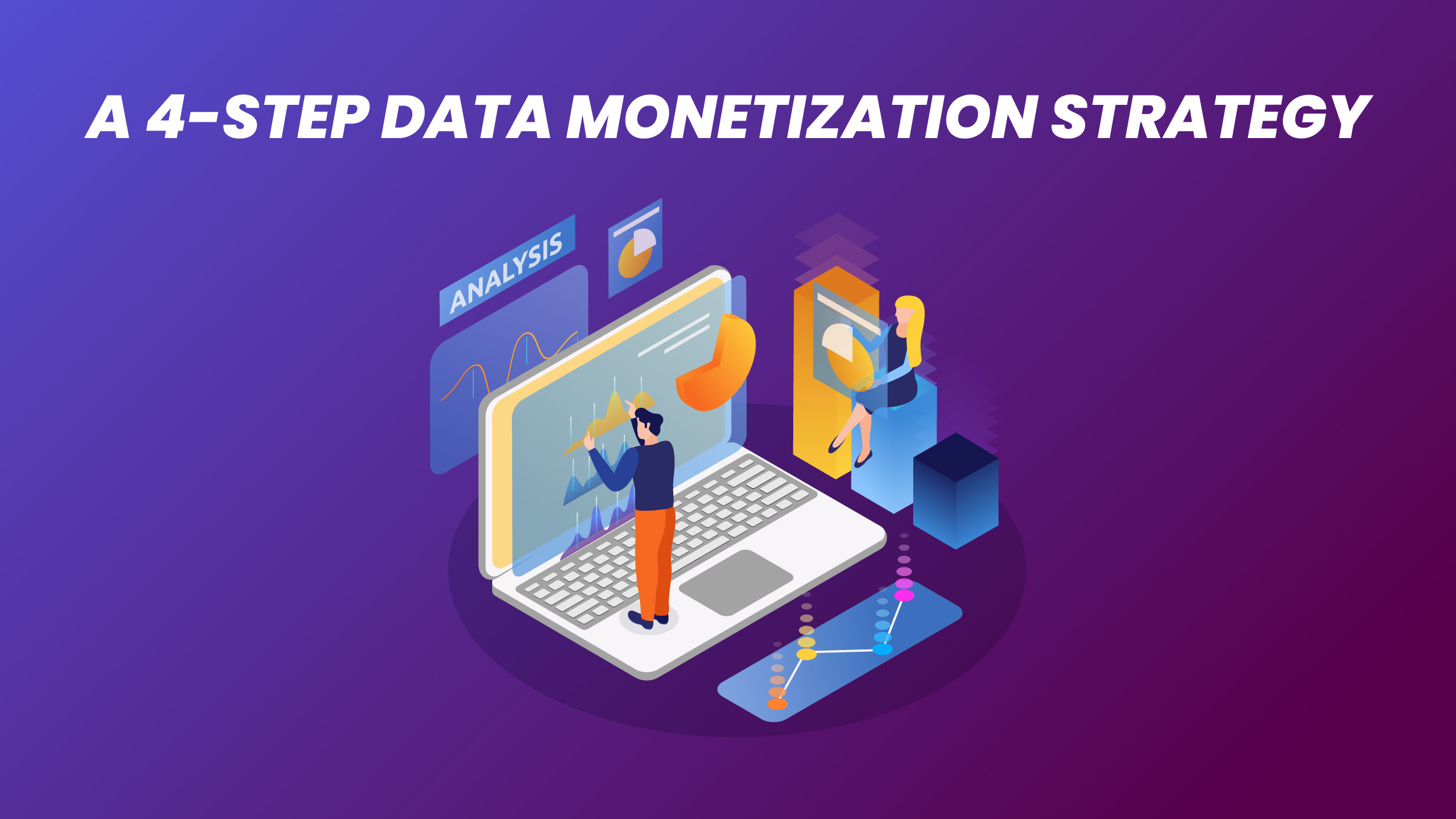People are captivated by the allure of hidden treasure, whether it’s priceless paintings in dusty attics or valuable antiques in charity shops. However, from a corporate standpoint, the real hidden wealth lies in data monetization. Many companies possess millions if not billions of dollars in unacknowledged value within their organizations—value that goes beyond art or antiques and is rooted in data.
In today’s business landscape, data stands out as one of the most valuable corporate assets. Despite this, a majority of companies overlook its potential and fail to capitalize on it. This article aims to guide you in unlocking the untapped value of your data through effective strategies.
Let’s get started!
What is Data Monetization?
Data monetization transforms company-generated data into measurable economic benefits, boosting revenue or cutting expenses. Additionally, sharing data fosters intangible benefits like partnerships and improved supplier terms.
As organizations recognize the significant value of their data, they may decide to venture into the realm of offering data services to external companies. Companies like Facebook and Google were at the forefront of this movement, leveraging their free platforms to generate substantial data assets that they could subsequently market worldwide.
Why Monetize Data Now?
According to Deloitte, companies that are going through the process of digital transformation are becoming increasingly aware of the vast amount of data they generate and the significant amount of external data they consume. In fact, a report by Forrester cited by Deloitte reveals that in 2020, 70% of organizations were already utilizing external data, and an additional 17% have plans to incorporate it within the next year. By harnessing both internally generated and external data, companies have the opportunity to explore new avenues of generating revenue by offering their data to the market for evaluation and potential purchase.
Furthermore, with the ongoing clarification of regulations surrounding data usage and transfer, companies are well-positioned to gain insight into which data they can profit from and the appropriate methods for doing so in a manner that complies with regulations and is environmentally responsible.
Also Read : A Guide to Cybersecurity for Small Businesses: What You Need to Know in 2024
Moreover, in the digital age, app data monetization emerges as a pivotal strategy for optimizing the value derived from mobile applications. As users interact with apps, valuable data insights are generated, presenting a lucrative opportunity for businesses. Leveraging app data monetization allows organizations to not only enhance user experiences but also unlock new revenue streams.
Key Types of Data Monetization

1. Data as a Service
Data as a Service (DaaS) is a direct and uncomplicated approach to monetizing data. It involves selling data directly to intermediaries or customers, either in aggregated or raw form. Buyers can extract insights tailored to their needs, as they independently derive information from the provided data.
2. Insight as a Service
The company combines data from external and internal sources and utilizes analytics to extract valuable information. This information can be sold as is or converted into various formats before being sold. However, these insights are restricted to the context, datasets, and specific information that has been purchased.
3. Analytics-Enabled Platform as a Service
One of the most versatile types to monetize data is implemented by installing and utilizing a business intelligence and analytics platform. This approach offers customers valuable and customizable real-time data analytics, providing them with a substantial amount of value.
4. Embedded Analytics
Embedded analytics is an advanced and attractive form of monetizing data. It adds business intelligence features to existing applications, creating customized analytics apps for scalable implementation. This not only opens new revenue streams but also offers a competitive edge.
What are the Methods of Data Monetization?
This method involves extracting tangible economic value from an organization’s data. Various approaches can be employed to achieve this, such as:
● Selling or Licensing Data to Third Parties:
Organizations have the opportunity to generate income by selling or licensing their data to external entities for a specified payment. This process entails compiling and disseminating the data to interested purchasers and users, and it has the potential to yield substantial financial benefits.
● Internal Data Monetization:
In this method, an organization utilizes its internal data to gain valuable insights that can result in enhanced profitability, cost reduction, or risk mitigation. This is the primary method used for monetizing data and involves fewer concerns regarding security, intellectual property, and legal precautions when compared to external data monetization.
● Wrapping Analytics Around Products and Services:
To cater to a knowledgeable audience, companies need to leverage data analytics to develop innovative products and services. This entails utilizing data insights to introduce new offerings, like the implementation of dashboards that offer valuable metrics on customer sentiment or product utilization.
● Improving Business Processes:
This process can also encompass the utilization of data to enhance business procedures. This could involve harnessing data to streamline operations, improve decision-making, and increase efficiencies within the company.
A 4-Step Data Monetization Strategy

Before you can begin to take advantage of this process and its benefits, it is essential to prepare your organization. Here are some steps to begin with this journey.
Step 1: Gain buy-in
The data monetization drive should originate from the organization’s top leadership. Leaders must recognize that effective data analytics doesn’t just cut costs but can generate substantial additional revenue. Communicate this importance to key stakeholders for optimal results.
Step 2: Evaluate current data and plan future collection
A crucial initial step in monetizing your data is evaluating its worth. Conduct an audit to identify valuable data and assess if additional resources are needed. Additionally, ensure you’re measuring all potential data points to uncover monetization opportunities.
Step 3: Decide your target audience
After evaluating your data’s value, determine your target audience for sharing. It doesn’t have to be external; critical internal departments, like sales, can benefit. For external sharing, assess if raw data holds value or needs in-house analysis for economic benefit.
Step 4: Set your goals
Prior to embarking on this journey to monetizing your data, clarify your overarching objectives. Whether it’s in-house cost reduction or launching a data-as-a-service arm, distinguish your goal upfront. Changing objectives post-investment becomes challenging.
Final Thoughts
The realm of data monetization unveils a trove of untapped potential for businesses. As we navigate the intricacies of this transformative process, it becomes evident that strategic and informed decision-making is paramount. By implementing an appropriate data monetization strategy, businesses can not only unlock hidden value but also pave the way for innovation, efficiency, and sustained growth. The journey to monetizing data is an ongoing evolution, and those who embrace it with foresight and agility are poised to thrive in the dynamic landscape of the data-driven future.






